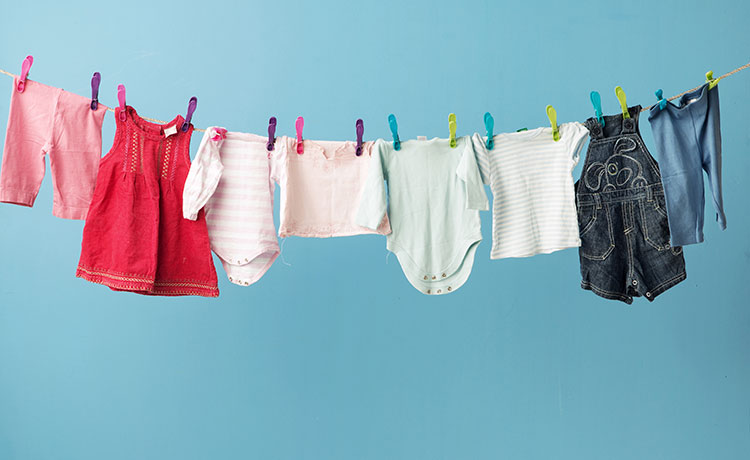
As the saying goes, mothers know best, and we wanted to get the real low-down from a busy mum who has experienced trying times with a baby who's had a delicate tummy. Charmaine Seah-Ong, mum to Charlie Rose (now 2 years old), and co-founder of Singapore branding and marketing agency Elementary Co, shares some of her experiences and gives us her top parenting hacks. For all the mamas who are feeling overwhelmed, don't worry and remember, you know your baby best.

Tip #1 – Remain calm
Everyone talks about the wonders of motherhood, but no amount of talking or reading will prepare you for the dirty details. It's no surprise that the term 'delicate tummy' doesn't make it to most of the pre-baby conversation. Whilst pregnant with Charlie Rose, first-time mum Charmaine certainly didn't anticipate a delicate tummy. In fact she had no idea what it meant! After six months of age, when Charlie Rose started spitting up her food, like every mother, Charmaine began to worry if she was getting enough nutrition.
If you have ever been put in a similar situation, the information found especially on the Internet can be extremely overwhelming, and as a mother, it's natural to panic. Charmaine advises first-time parents to remain calm and focus on what is important and relevant for you and your child, as motherhood is a big learning curve at each stage.

Tip #2 – Listen to your baby
Every baby is different, but sometimes the tell-tale signs are the same, so it's important to listen to your baby during their feeds. Take time to capture their reactions during and after mealtime – do they appear uncomfortable or a little grumpy? Do they spit up or pass excessive gas after a big feed? The key sign Charmaine saw in Charlie Rose was her regular spit up after her feed and how uncomfortable Charlie Rose looked.
One useful tip from Charmaine is to record your baby's feed for the first three days after the first sign, along with the timing of the feeds and what they are ingesting. It will give you a much clearer idea of what exactly is making your baby feel uncomfortable and what the next steps should be.
Tip #3– Feed in Small Doses
If you're lucky, you might have a "baby whisperer" in the family, like Charmaine did. Having raised four children of her own, Charmaine's mother was more than equipped with tips and tricks to pass on to her daughter, she advised Charmaine to feed in smaller quantities per session to give the stomach more time to settle even when she was more than six months old.
When Charlie Rose was able to take in solid food into her diet after six months of age, Charmaine continued to practice "a little goes a long way", giving her baby more time to digest.

Tip #4 – Be prepared for a little mess
With a fussy baby, always be prepared to get a little messy! Charmaine recommends keeping a handy bag that has everything mums need: a change of clothing, handy pack of wipes for the messy spit ups, and dry snacks like baby crackers to munch on when Charlie Rose can't handle other food. And for the days when the going gets tough, Mama, take a deep breath and count to ten. A little patience, mindfulness, and some tea goes a long way.
Tip #5 – Look for alternatives
If your baby has a delicate tummy, never suffer in silence, trust your instinct and seek advice from your paediatrician, family or friends.
You may also consider making dietary changes for your little one, such as switching to milk products or food that is more suitable for young, developing tummies, after seeking advice.

All content here including text, graphics, images, other visual materials, links and references to other sites are provided for general informational purposes only. It is not designed to, and should not be construed to, provide medical advices, professional diagnosis, opinion or treatment to you, your child or any other individual, and is not intended as a substitute for medical or professional care and treatment. If you have a question or have concerns regarding your child’s condition, please consult your healthcare professional for further advice.

